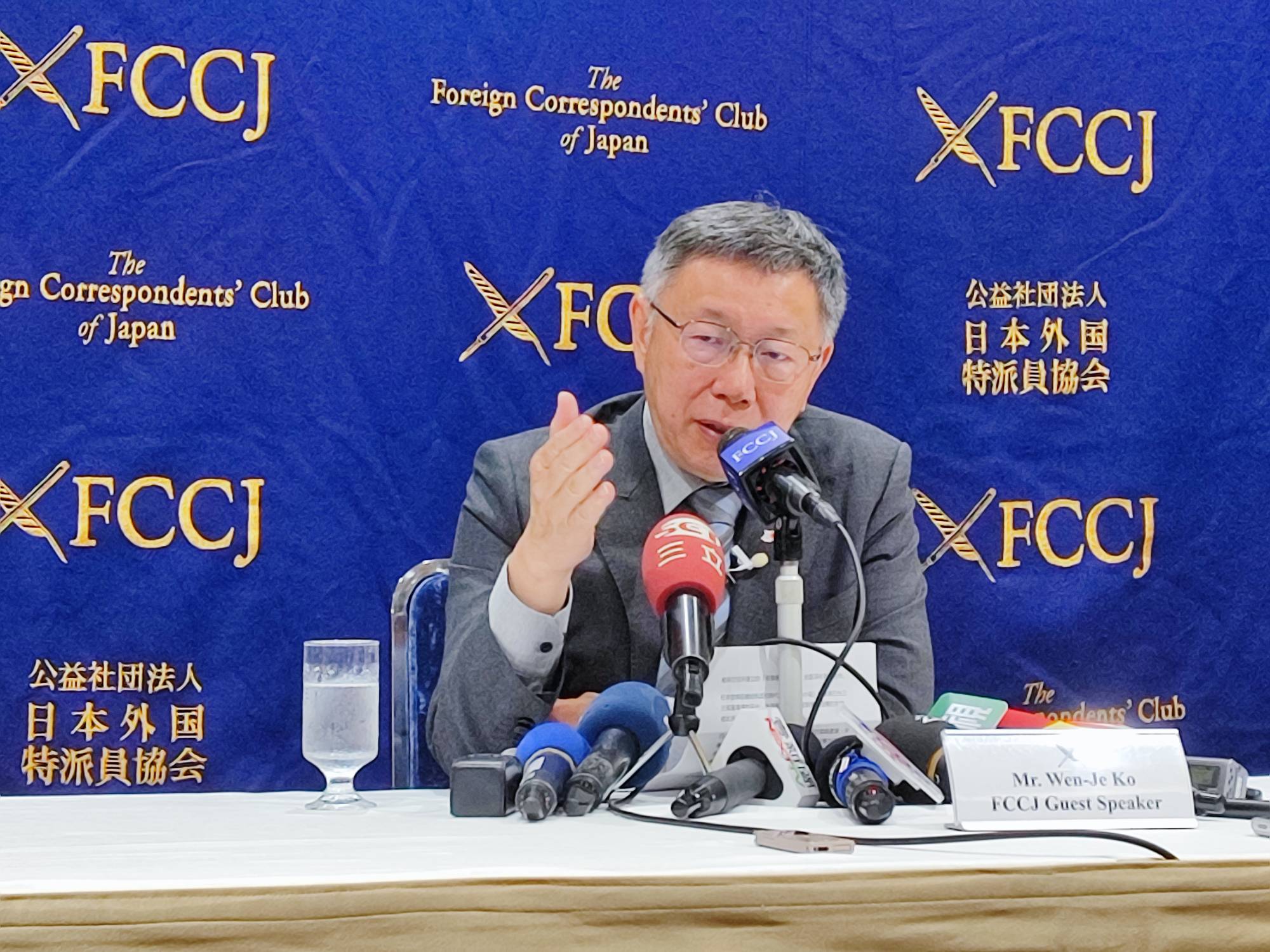Taiwanese presidential contender Ko Wen-je said Thursday he would advocate a mix of deterrence and dialogue when dealing with China not only to deter possible aggression but also to foster peace between the two sides, which, according to the 63-year-old, are “one family.”
Speaking at a news conference in Tokyo, Ko, who is running in January’s presidential election for the Taiwan People's Party (TPP), said that while it is important for Taiwan to have well-established national defense capabilities, “seeking dialogue” with Beijing is crucial to make any improvement in cross-Strait relations.
“We need to build trust between the two sides, and we need to be creative in trying to solve the problem,” he said.
















With your current subscription plan you can comment on stories. However, before writing your first comment, please create a display name in the Profile section of your subscriber account page.